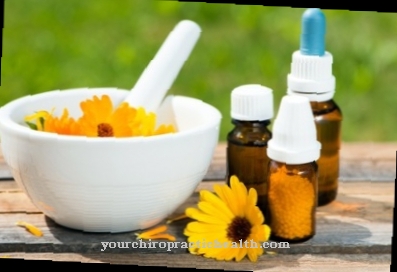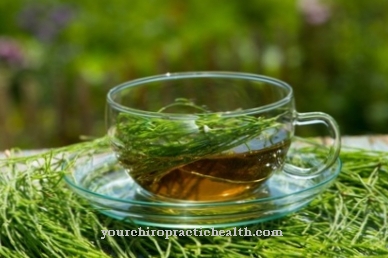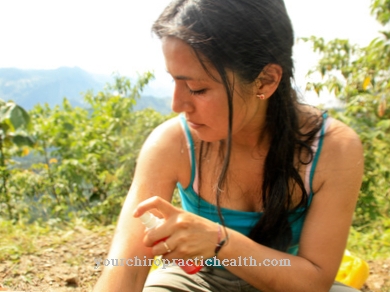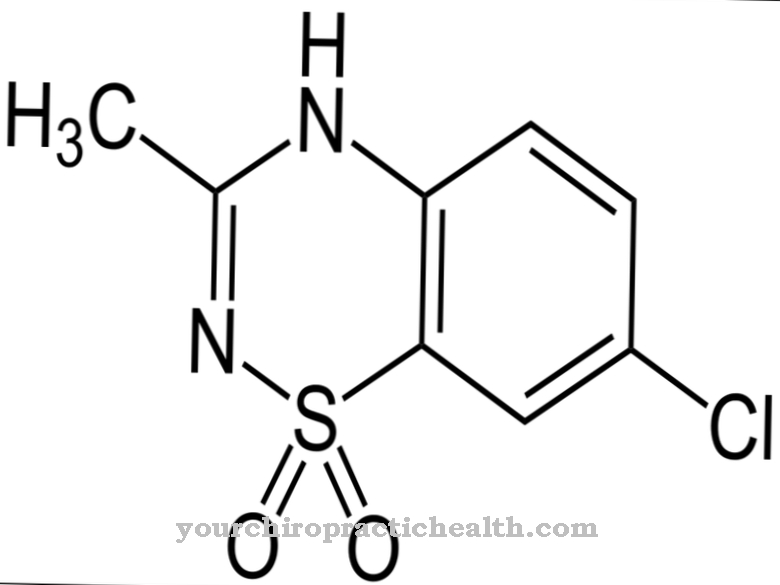Sunscreens were developed for application to the skin and protect against UV rays and the resulting skin reactions such as redness, blistering and premature skin aging.
What is sunscreen?

In popular parlance, the term also includes preparations such as sun milk, sun gel and sun oil suncream summarized. In addition, sunscreen is only a useful additional protection to avoid sunburn and the resulting skin diseases.
In addition to using sunscreen, avoiding extensive sunbathing and wearing clothing and headgear is considered sensible, since sunscreen only offers limited protection against damage from sun rays.
That is why it is also particularly important to apply the cream at regular intervals and over a large area. The majority of all commercially available sun creams only work half an hour after application. By the way, at lunchtime, when UV radiation is strongest, many sun creams lose their effectiveness.
You should therefore primarily stay in the shade between 11 a.m. and 2 p.m.
Application, benefits & use
suncream Its primary purpose is to protect the skin all over the body from harmful UV rays. The human skin can only protect itself to a certain extent - this self-protection depends on the genetically determined skin type and the previous damage to the skin from sun exposure.
It is therefore mainly used in the hot summer months as well as in winter at higher altitudes. If you do not use sunscreen, on the one hand immediate skin damage and on the other hand damage occurring later can occur. Skin changes that occur immediately after sunburn include sunburn, redness, blistering and the typical pain that one feels with burns.
Changes in the skin, which usually only develop after years of unprotected sunbathing, include pigmentation disorders, wrinkling and malignant skin cancer. Sun creams are also used to protect the skin from drying out. A lot of moisture is withdrawn from the skin at high temperatures, wind and water.
For this reason, many sun creams contain greasy substances such as fatty acids, glycerine, silicone oils and also antioxidants. These help the skin to protect and regenerate.
Herbal, natural & pharmaceutical sunscreens
suncream are available in a wide variety of designs, with products with chemical light protection being the most common in stores. The chemical sun creams include, for example, the classic sun lotion. It contains additives that protect and care for the skin. Sun sprays have the advantage that they are quickly absorbed and can be easily spread on the skin.
Sun gels also belong to the chemical sun protection products. Sun gels without oily ingredients are particularly suitable for people with sensitive skin that is prone to allergies and dehydration. However, there are now some natural sun creams available. Instead of a chemical one, these have a mineral light protection, which is guaranteed by zinc oxide or titanium oxide. These natural sun creams have a medium to high sun protection factor.
Plant-based sun creams are mostly made on an oil basis and therefore have a very low sun protection factor. This type of sunscreen is often mixed with natural essential oils such as vanilla extract, and shea butter is also often found in herbal creams and lotions.
Sun creams differ not only in terms of their ingredients, the sun protection factor also varies. Sun creams are available with sun protection factors 50+, 50, 30, 25, 20, 15, 10 and 6.
Risks & side effects
Sunscreens can lead to side effects in the event of intolerance or incorrect use. The most common overreaction of sunscreens is skin changes. These irritations include, for example, mild to severe itching, sun allergies, pimples and blisters, and reddening of the skin.
These side effects occur in most cases when using a sun cream that contains preservatives, fragrances and colorings and can therefore be avoided by using herbal products. Furthermore, the use of sun creams can lead to disturbances of the calcium balance. In addition, sun creams can only work if you choose the right sun protection factor and cream your skin often enough.





















.jpg)





